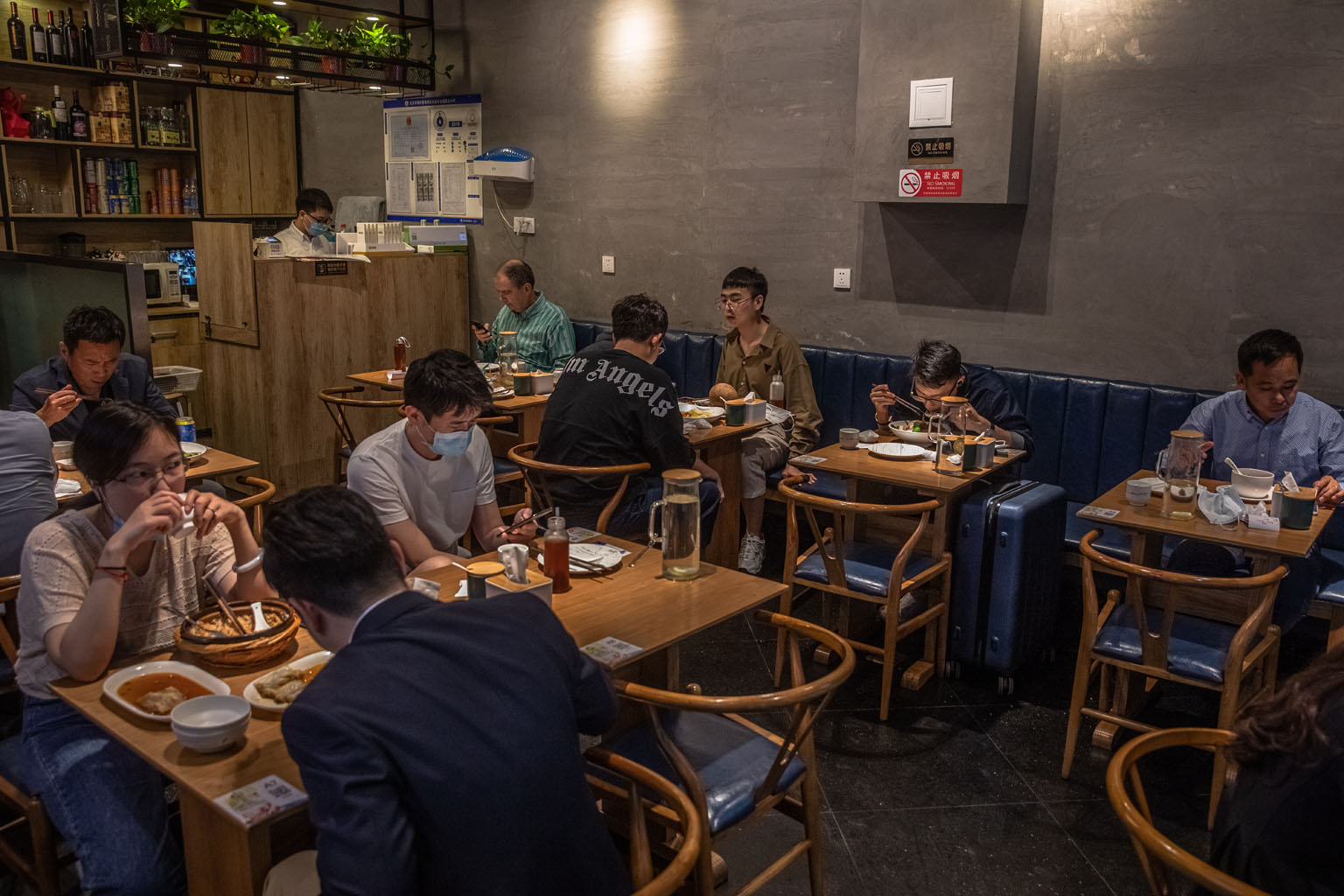Restaurant owner Chen Xia is looking for part-time work.
The 38-year-old, who owns a small eatery serving Japanese food in east Beijing, wants to supplement her income so that she can keep her two workers employed.
During the coronavirus outbreak, her restaurant was shut for nearly two months and she had to rely on her savings. Now that control measures have eased and businesses have reopened, her outlet is serving a reduced menu, which caters mostly to takeouts.
"People are beginning to eat out again but are ordering less. Maybe because they're trying to save money," she said.
While social distancing measures have eased across China, shoppers and diners remain somewhat wary about venturing out again.
Malls remain half-empty, with a number of shops and restaurants permanently shuttered - victims of the coronavirus economic fallout.
Anticipating a downturn, people are also spending more conservatively, defying expectations of a post-outbreak consumption binge.
Retail sales of commercial goods last month hit 2.82 trillion yuan (S$566 billion), a slight increase from the previous month, official data showed. But compared with the same period last year, it was still a 7.5 per cent decrease, said the National Bureau of Statistics, with people spending nearly 30 per cent less on jewellery.
The food and beverage industry remains one of the worst-hit sectors, netting 230 billion yuan, 31.1 per cent lower than last year.
The figures show the economy is still in the "range of decline" and has not returned to the levels of previous years, said bureau spokesman Liu Aihua.
"The huge impact on the world economy is still in the process of development... The stable recovery of the domestic economy is also facing many new challenges," she said, adding that unemployment pressure remains "relatively big".
With an unemployment rate of 6 per cent last month, slightly higher than in March, it will also be an area of concern for policymakers when they meet next week.

But migrant workers, who form a large part of the workforce, are not included in those figures.
"(The lack of consumption) reflects continued strain on household finances, with the surveyed unemployment rate edging up to 6 per cent last month and the true level of unemployment likely double this, given that around a fifth of migrant workers have not returned to the cities," wrote Capital Economics in a research note.
Worried about a looming economic downturn, many are choosing to forgo non-essentials, including dining out.
Local governments, including that of former virus epicentre Wuhan, have doled out consumption vouchers in a bid to spur on local spending.
But this has seen a lukewarm response, with local retailers and restaurant operators saying the one-off subsidy might not be enough to keep customers coming back.
"It might help with the rent and salaries for this month, but what about next month, and the month after?" asked Madam Wang Jing, who runs a Cantonese restaurant in Wuhan.
While crowds were seen in Beijing malls and restaurants during the Labour Day holidays, right after the city eased social distancing measures, the footfall has eased slightly in recent days.
Many are also switching to shopping online. Internet sales were up nearly 2 per cent, netting 3 trillion yuan in the first four months of this year, as a population under lockdown turned to virtual stores.
Livestreams, where shop owners or celebrities promote items for sale, have grown in popularity.
Even local governments are jumping on the livestreaming bandwagon, selling local produce ranging from food items such as tea and shrimp to more off-kilter offerings like socks, drawing hundreds of thousands of viewers each time.
For many younger Chinese like executive Sherri Li, who works in a logistics firm, online shopping is the way to go.
During the May Day holidays, she watched several livestreams and spent close to 500 yuan on an assortment of make-up, clothes and even black fungus for her mother.
"It's much easier to buy things now that I can stay in one spot and buy from several different stores at the same time," she said.
"But maybe the downside of this virus is that now all of us have an excuse to be lazy and not go out."
It is exactly this sort of sentiment that keeps Madam Chen up at night.
"If people come to the restaurant, you can always encourage them to order one more dish, one more drink," she said.
"But with people so worried to spend, I'm not sure how much longer I can hold on."











